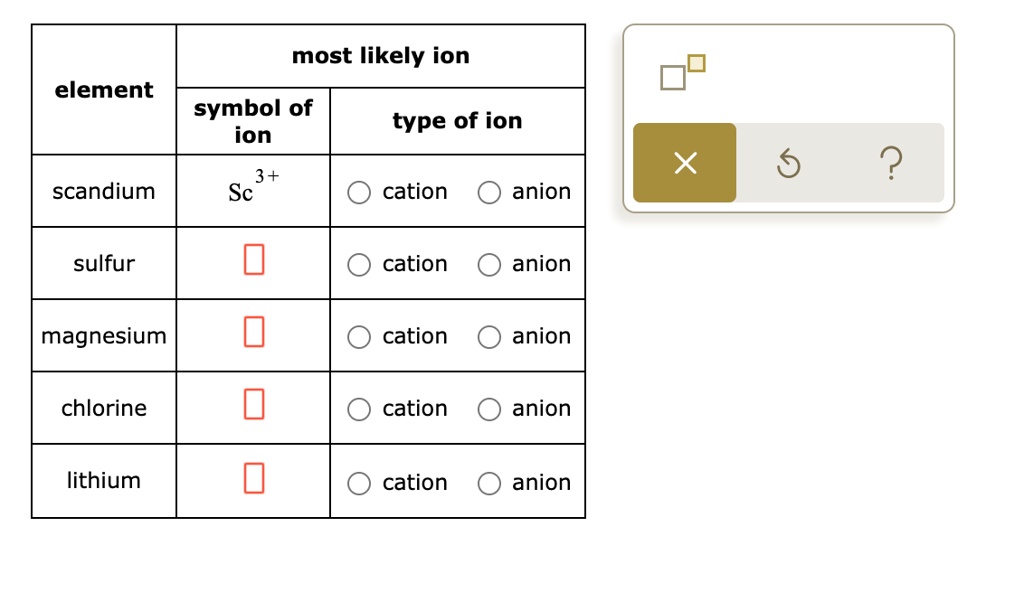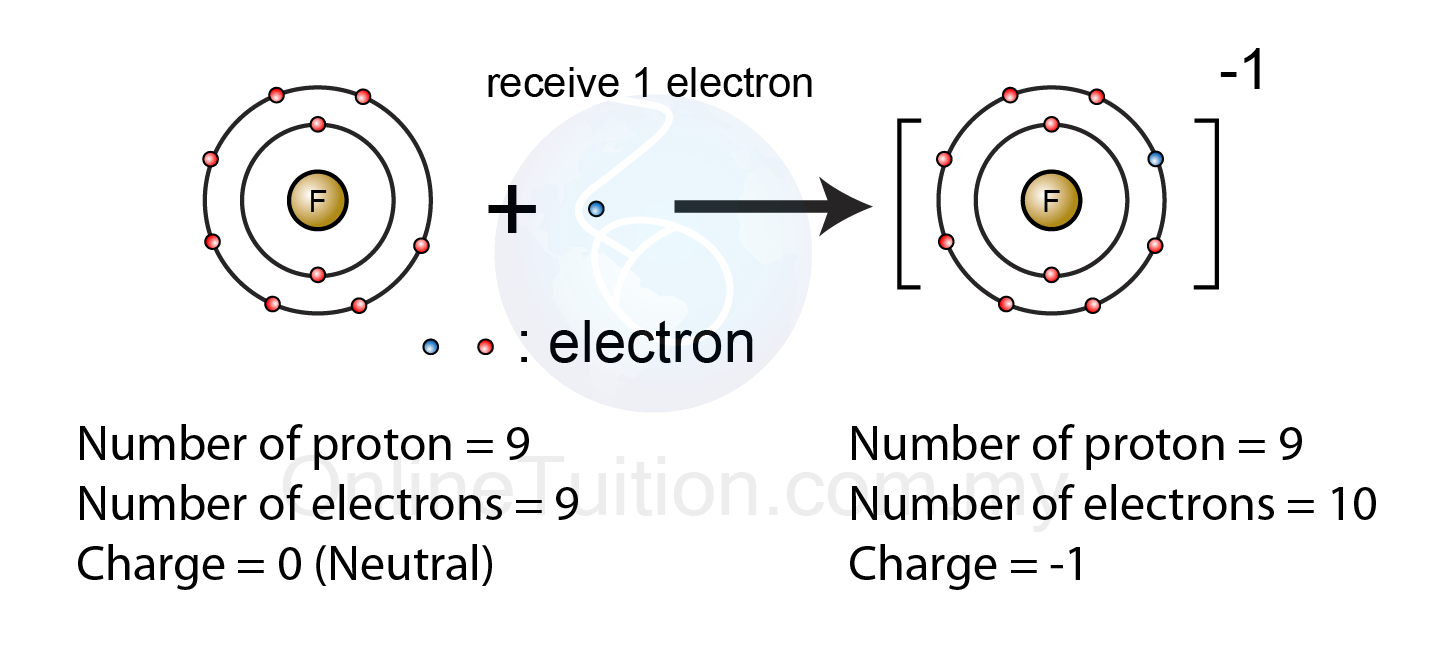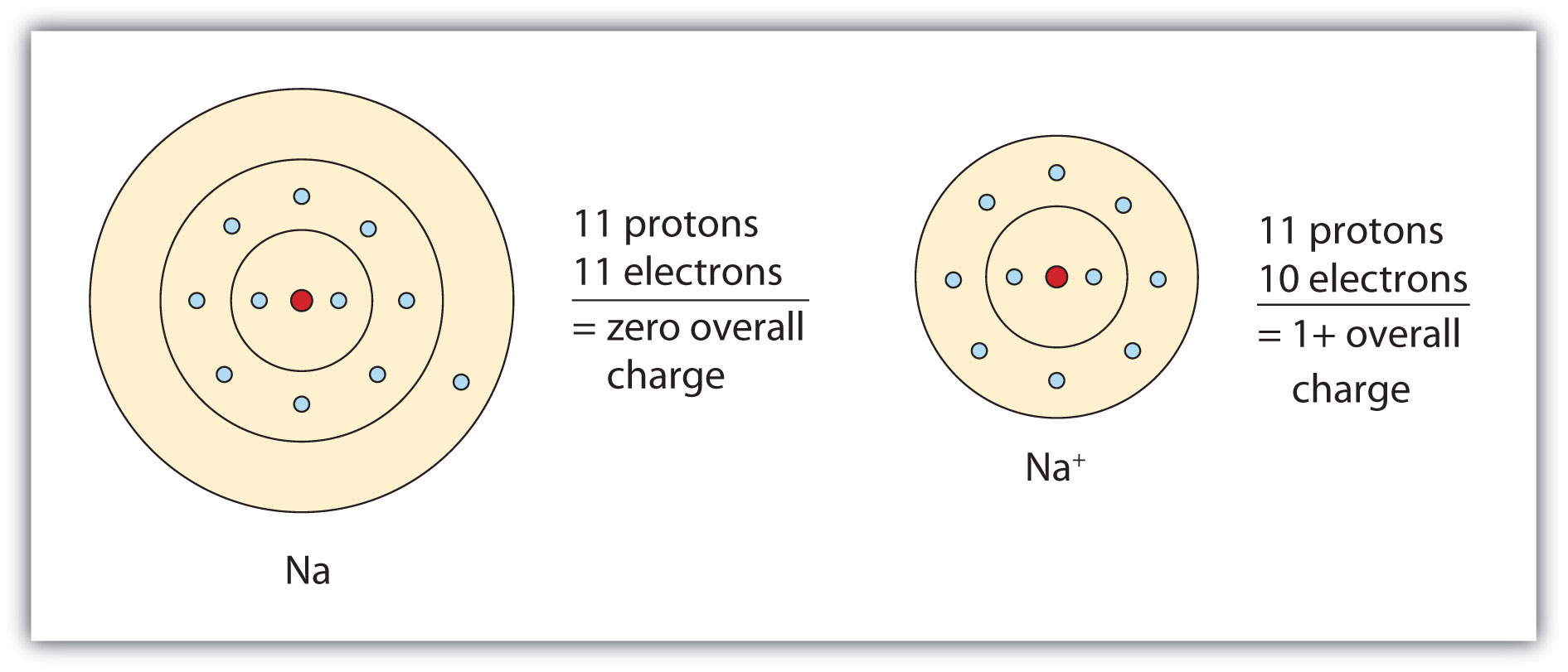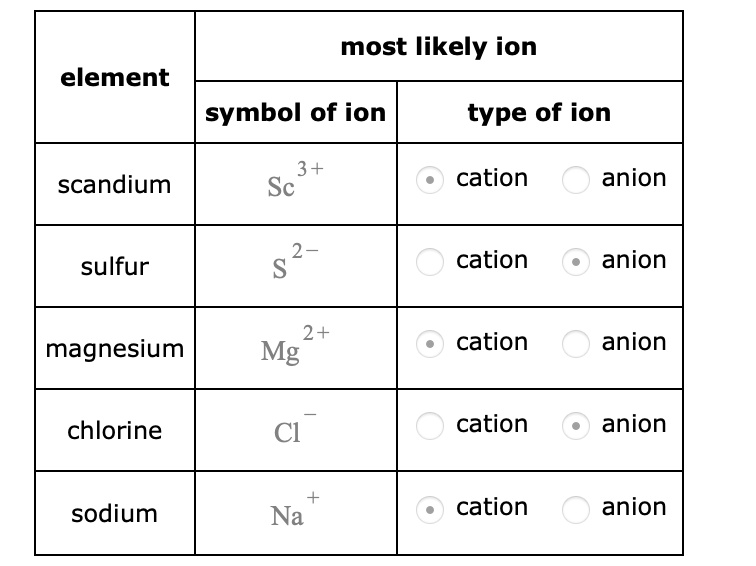Which Is Most Likely To Form A Negative Ion
Which Is Most Likely To Form A Negative Ion - Ionic formulas balance the total positive and. Iodine and potassium form an ionic bond. Ions form when atoms lose or gain electrons. Iodine has seven electrons in its outer shell, and potassium has one electron in its outer shell. Ionic compounds have positive ions and negative ions.
Iodine has seven electrons in its outer shell, and potassium has one electron in its outer shell. Ions form when atoms lose or gain electrons. Ionic compounds have positive ions and negative ions. Iodine and potassium form an ionic bond. Ionic formulas balance the total positive and.
Iodine has seven electrons in its outer shell, and potassium has one electron in its outer shell. Ionic compounds have positive ions and negative ions. Ions form when atoms lose or gain electrons. Iodine and potassium form an ionic bond. Ionic formulas balance the total positive and.
[Solved] Which of the following has a full valence shell?
Ionic compounds have positive ions and negative ions. Iodine and potassium form an ionic bond. Ionic formulas balance the total positive and. Ions form when atoms lose or gain electrons. Iodine has seven electrons in its outer shell, and potassium has one electron in its outer shell.
SOLVED most likely ion element symbol of ion type of ion 3 + Sc
Ionic compounds have positive ions and negative ions. Iodine has seven electrons in its outer shell, and potassium has one electron in its outer shell. Iodine and potassium form an ionic bond. Ionic formulas balance the total positive and. Ions form when atoms lose or gain electrons.
Exploring the Impact of Negative Ions on Bread Baking Del Buono's Bakery
Ionic formulas balance the total positive and. Iodine has seven electrons in its outer shell, and potassium has one electron in its outer shell. Iodine and potassium form an ionic bond. Ionic compounds have positive ions and negative ions. Ions form when atoms lose or gain electrons.
What Is Most Likely To Form A Negative Ion
Iodine and potassium form an ionic bond. Iodine has seven electrons in its outer shell, and potassium has one electron in its outer shell. Ionic formulas balance the total positive and. Ions form when atoms lose or gain electrons. Ionic compounds have positive ions and negative ions.
Which one of the atoms shown would most likely form a cation with a
Ionic formulas balance the total positive and. Ionic compounds have positive ions and negative ions. Iodine has seven electrons in its outer shell, and potassium has one electron in its outer shell. Ions form when atoms lose or gain electrons. Iodine and potassium form an ionic bond.
Solved most likely ion element symbol of ion type of ion
Ionic compounds have positive ions and negative ions. Iodine and potassium form an ionic bond. Ions form when atoms lose or gain electrons. Ionic formulas balance the total positive and. Iodine has seven electrons in its outer shell, and potassium has one electron in its outer shell.
Solved most likely ion element symbol of ion type of ion
Iodine and potassium form an ionic bond. Ionic compounds have positive ions and negative ions. Iodine has seven electrons in its outer shell, and potassium has one electron in its outer shell. Ionic formulas balance the total positive and. Ions form when atoms lose or gain electrons.
Phosphate Ion Formula And Charge
Ionic formulas balance the total positive and. Iodine and potassium form an ionic bond. Ions form when atoms lose or gain electrons. Ionic compounds have positive ions and negative ions. Iodine has seven electrons in its outer shell, and potassium has one electron in its outer shell.
SOLVED most likely ion element symbol of ion type of ion scandium Sc3
Iodine has seven electrons in its outer shell, and potassium has one electron in its outer shell. Iodine and potassium form an ionic bond. Ions form when atoms lose or gain electrons. Ionic formulas balance the total positive and. Ionic compounds have positive ions and negative ions.
Which Is Most Likely to Form a Negative Ion DeborahkruwHogan
Ions form when atoms lose or gain electrons. Iodine and potassium form an ionic bond. Ionic compounds have positive ions and negative ions. Ionic formulas balance the total positive and. Iodine has seven electrons in its outer shell, and potassium has one electron in its outer shell.
Ionic Compounds Have Positive Ions And Negative Ions.
Ions form when atoms lose or gain electrons. Ionic formulas balance the total positive and. Iodine and potassium form an ionic bond. Iodine has seven electrons in its outer shell, and potassium has one electron in its outer shell.
![[Solved] Which of the following has a full valence shell?](https://media.cheggcdn.com/study/ff1/ff111db3-57de-413e-80d8-cfa331957360/image)








